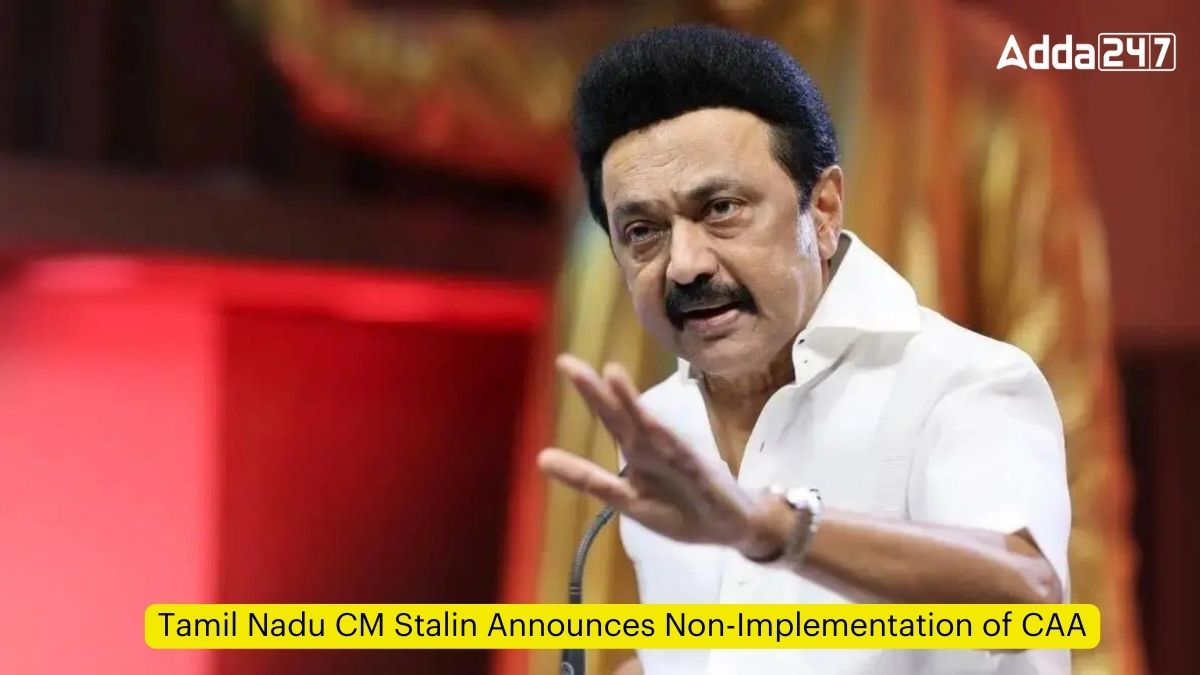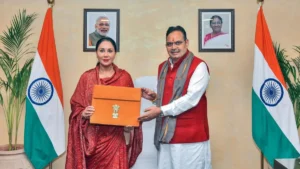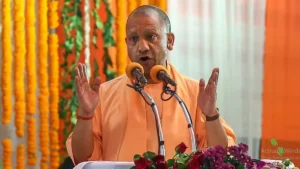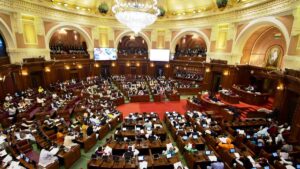Tamil Nadu Chief Minister M.K. Stalin on Tuesday, March 12, 2024, announced that the Citizenship (Amendment) Act (CAA), whose rules were notified by the Union Home Ministry on March 11, will not be implemented in the state. The decision comes amid growing concerns that the CAA goes against minorities and Sri Lankan Tamils living in camps in Tamil Nadu.
Assembly Resolution and Opposition from Other States
Recalling the Tamil Nadu Legislative Assembly‘s resolution against the CAA on September 8, 2021, Stalin highlighted the voices of opposition to the controversial act from other states as well. He questioned whether the notification of rules was timed to coincide with the upcoming elections and divert public attention from the Supreme Court’s electoral bonds issue.
CAA: Expedited Citizenship for Non-Muslims
The CAA, passed by the Parliament in 2019, aims to expedite the citizenship process for non-Muslim migrants, including Hindus, Sikhs, Jains, Buddhists, Parsis, and Christians, who migrated from Bangladesh, Pakistan, and Afghanistan and arrived in India before 2014. However, the act has faced widespread protests and criticism from opposition parties for its perceived discrimination against Muslim immigrants.
Opposition Alleges Political Motives
Stalin hit out at the BJP regime at the Centre for notifying the CAA rules “in haste” when the Lok Sabha polls are approaching. The opposition parties have accused the ruling BJP of introducing the CAA for political gains and to polarize voters along religious lines ahead of the elections.
Concerns over Minority Rights and Sri Lankan Tamils
The Tamil Nadu government’s decision to reject the CAA implementation stems from concerns over its potential impact on minority rights and the well-being of Sri Lankan Tamils residing in camps within the state. The move is expected to resonate with the significant Tamil population in the state and garner support for the ruling party in the upcoming elections.
As the election season intensifies, the CAA debate is likely to remain a contentious issue, with opposition parties vowing to challenge its implementation and the ruling BJP defending the act as a measure to protect persecuted minorities from neighboring countries.




 Rajasthan Budget 2026–27 Presented with ...
Rajasthan Budget 2026–27 Presented with ...
 Uttar Pradesh Tables First-Ever Economic...
Uttar Pradesh Tables First-Ever Economic...
 Uttar Pradesh Presents ₹9.13 Trillion Bu...
Uttar Pradesh Presents ₹9.13 Trillion Bu...








